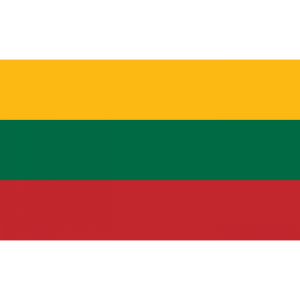Difference between revisions of "Language/Lithuanian/Grammar/Personal-Pronouns"
m (Quick edit) |
m (Quick edit) |
||
| Line 2: | Line 2: | ||
{{Lithuanian-Page-Top}} | {{Lithuanian-Page-Top}} | ||
<div class="pg_page_title">Lithuanian Grammar | <div class="pg_page_title">[[Language/Lithuanian|Lithuanian]] → [[Language/Lithuanian/Grammar|Grammar]] → Personal Pronouns</div> | ||
__TOC__ | __TOC__ | ||
| Line 105: | Line 105: | ||
| Line 133: | Line 133: | ||
{{Lithuanian-Page-Bottom}} | {{Lithuanian-Page-Bottom}} | ||
<span maj></span> <span gpt></span> <span model=gpt-3.5-turbo></span> | |||
Revision as of 21:03, 18 March 2023
Overview
In this lesson, we will cover the different personal pronouns in Lithuanian and how to use them in conversation. Personal pronouns are essential for effective communication and are crucial for beginners who want to learn Lithuanian. Pronouns are words that are used in place of a noun, and comprehending their usage is essential for learners to construct smooth and coherent sentences in Lithuanian.
Personal Pronouns
Personal pronouns refer to people or things and perform the function of the subject, object, or possessive pronoun in a sentence. Here are the personal pronouns used in Lithuanian with their English translations:
| Lithuanian | Pronunciation | English |
|---|---|---|
| aš | [aːʃ] | I, me |
| tu | [tu] | you (singular) |
| jis | [jis] | he, him |
| ji | [ji] | she, her |
| mes | [mɛs] | we, us |
| jūs | [juːs] | you (plural) |
| jie | [jɛ] | they |
Here are some examples of personal pronouns in Lithuanian:
- Aš kalbu lietuviškai. - I speak Lithuanian.
- Ji yra mano draugė. - She is my friend.
- Mes mėgstame mokytis naujų dalykų. - We like to learn new things.
- Jūs dažnai lankotės restoranuose? - Do you often visit restaurants?
- Jie mėgsta groti muzikos instrumentais. - They like to play musical instruments.
Usage
Personal pronouns can represent various things, such as people, animals, things, and ideas.
When using personal pronouns, it is essential to consider the context of the sentence to choose the right pronoun to use. In situations where you are not sure about which pronoun to use, it is best to use the formal version of the pronoun, as it is more polite to use a formal pronoun when speaking to someone you don't know well or someone who is older than you.
Here are some examples of when to use a specific personal pronoun:
Aš (I, me)
Use "aš" when referring to yourself in the first person.
Tu (you - singular)
Use "tu" when addressing someone informally or someone younger than you.
Jis (he, him) and Ji (she, her)
Use "jis" when referring to a man or boy and "ji" when referring to a woman or girl.
Mes (we, us)
Use "mes" when referring to yourself and others who are with you.
Jūs (you - plural)
Use "jūs" when addressing someone formally or someone older than you. Also use "jūs" when referring to more than one person.
Jie (they)
Use "jie" when referring to a group of men or a mixed group of men and women.
Jos (they)
Use "jos" when referring to a group of women.
Now that you know the rules of using personal pronouns in Lithuanian, let's move on to some examples of how to use them in conversation.
Examples
Below are some examples of personal pronouns in Lithuanian conversation:
Example 1
Lithuanian: Aš mėgstu sportą. English: I like sports.
Example 2
Lithuanian: Tu esi mano geriausias draugas. English: You are my best friend.
Example 3
Lithuanian: Jis kalba lietuvių kalba puikiai. English: He speaks Lithuanian perfectly.
Example 4
Lithuanian: Ji mėgsta skaityti knygas. English: She likes to read books.
Example 5
Lithuanian: Mes lankomės pas senelius kiekvieną savaitę. English: We visit our grandparents every week.
Example 6
Lithuanian: Jūs galite man padėti? English: Can you help me?
Example 7
Lithuanian: Jie važiuoja į Vilnių. English: They are going to Vilnius.
Now that you have learned about personal pronouns in Lithuanian, it is crucial to practice using them in conversations. In the next lesson, we will move on to cover the various verb tenses in Lithuanian.
Related Lessons
- Negation
- Adjectives
- Multipurpose Words and Suffixes
- Singular and Plural Nouns
- Conjugation
- Gendered Nouns
- Give your Opinion
- Plurals
- How to Use Have
- Nouns
